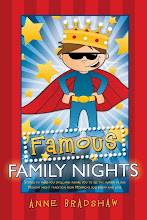By Nichole Giles
Do you ever wonder where authors get their ideas? How they are able to hold entire stories in their heads—complete with the smallest of details—and spew them onto paper? Yeah, well, just in case you thought I was about to answer that question, I’m not.
That’s not what this blog is about. Or, not entirely, at least.
When was the last time something struck you in a way that made you want to remember it forever? Or, maybe not forever. Maybe you just reveled in the moment, accepting whatever you were feeling and channeling it into a bottle in your innermost self—saving it for future use on…something. Were you feeling hurt? Was it happiness? Peace? Joy? Love? Confusion?
Whatever else goes into it, writing should start first and foremost with those genuine emotions we’ve all experienced, but have buried over time. If—as an author—you can’t dig so deep within yourself that you literally feel as if you’ve probed your heart with a needle, your readers will feel that lack. But if you do, readers will feel it with you, laugh with you, cry with you, and connect to your writing and your characters in a very personal, emotional way.
How do we do this? Okay, everyone’s different, so I can’t really tell you the answer. Instead, I’m going to make a few suggestions and throw out a few ideas to help you along.
1. Keep a journal. Never fool yourself into thinking that any particular moment in time has been so branded in your memory that you won’t forget even the most minor details. You will. Major ones too. Write it down, for goodness sake!
2. Pay attention. Notice the smaller details of what’s going on around you. What color is the sky today? What is that smell in the air? Does it make your mouth water or gag? What’s making that weird noise? These are things readers need to know in order to feel involved in a book, and you can’t write them if you don’t notice.
3. Appreciate the world. It’s a beautiful place, and inspiring simply because of those who created it. Do the earth justice by looking at and appreciating the handiwork there.
4. Follow your gut. When you get that insane urge to write—even if it’s in the middle of the night after you haven’t had any sleep for days—give in to it. Most likely, there’s a character, plot, or setting that absolutely must get out before it shrivels up and dies in the light of the rising sun. Just do it already!
5. Allow yourself to write a crappy first draft, because it can be fixed later. No explanation needed. That’s what editing is for.
6. Read, read, read, read. If you do nothing else to further your skills as an author, you must read. Know what publishers are buying. Know what readers are buying. Know what’s hot and what flopped and what is missing from the market. It doesn’t matter what you write, so much as it matters that someone else wants to read what you’ve written. Right? As I mentioned in this blog, it only takes one person to change the world.
Okay, this is getting long. Did I give you some ideas? Now, go get a notebook, write down all these suggestions, and then begin thinking of your story. Now do you have a good idea? I thought so! (If you don’t have one yet, you will soon.)
And you thought I wasn’t going to answer the idea question! Ha ha. I fooled you, didn’t I?
Until next time, write on!
Nichole
Monday, September 14, 2009
What Inspires You?
Posted by Nichole Giles at 12:02 AM
Labels: changing the world, emotional writing, ideas, Nichole Giles, writing, Writing Tips
Subscribe to:
Post Comments (Atom)

















4 comments:
Excellent suggestions! My biggest thing is watching people and taking in all their little nuances and habits that are unique.
Great blog you have here!
Being a people watcher is critical when trying to develop believable characters. But sometimes inspiration is born of tragedy. After a miscarriage a few years back I wrote some of my most touching work. And just recently certain observations have inspired me to take a fresh direction for my trilogy.
Very wise suggestions and I totally agree
Thanks, everyone.
Cheri, I totally agree with you. I've noticed that when I experience emotionally trying trials, my writing reflects those emotions. It definitely comes through. Which is why it's so important to write through those times.
Post a Comment